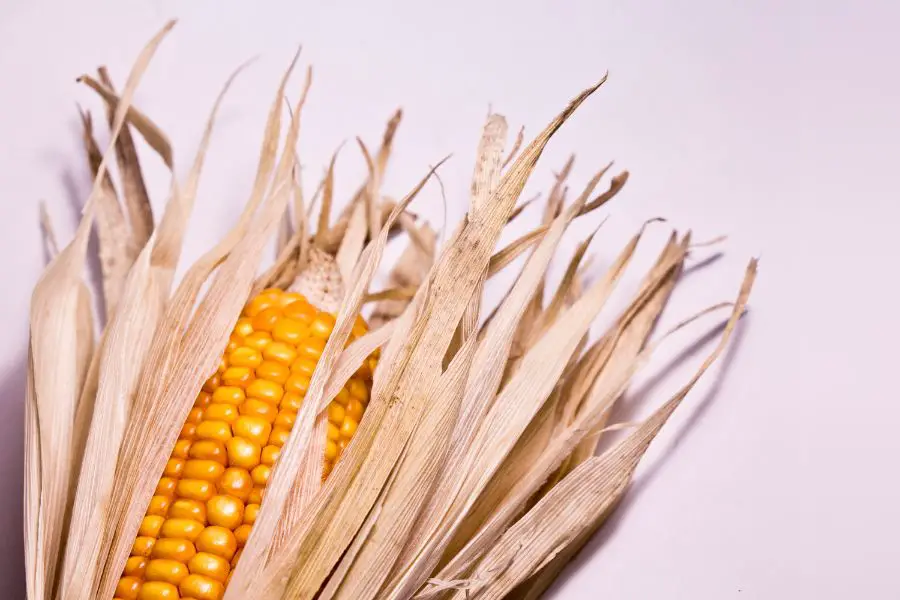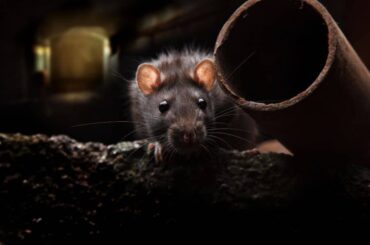QUICK ANSWER
How Long Does It Take for a Corn Husk to Decompose? Corn husks typically take about 6 months to 2 years to decompose, depending on environmental conditions such as temperature and humidity. In optimal composting conditions, the process may be quicker, but it can take longer in less favorable settings.

That papery corn husk may seem flimsy, but it can stick around longer than you’d think. Like any organic material, a corn husk’s decomposition depends on many factors. Read on to learn what impacts the breakdown process and estimate how long your husks could linger.
Why It Matters
Contents
Knowing corn husk decomposition times helps assess environmental impact. After harvest, farmers must dispose of tons of husks and other crop residue. Quick decay means less mess. Slow decay means wastes accumulate.
Gardeners also need to know if husks will decompose quickly in compost piles or persist as unsightly litter. No one wants long-lasting husks marring their beautiful backyard!
And understanding natural decay processes reveals nature’s extraordinary, hidden cycles of renewal. Respecting decomposition’s role inspires us to find sustainable ways to coexist with our environment.
So let’s dig in and demystify how long it takes this ubiquitous farm byproduct to return to the earth.
The Composition of Corn Husks
To estimate a material’s decomposition timeline, first consider what it’s made of. What compounds and structures give corn husks their physical form and properties?
Corn husks consist mainly of:
- Cellulose – This tough, fibrous molecule makes up plant cell walls and gives structural rigidity. It’s the most abundant organic compound on earth.
- Hemicellulose – A branched carbohydrate that connects cellulose fibers, adding support.
- Lignin – A complex polymer that glues plant cells together, providing stiffness. Lignin is more resistant to decay than cellulose.
So corn husks contain the typical sturdy compounds found in plant matter. But how do their physical qualities affect decomposition speed?
Factors That Influence Decomposition Rate
Many variables determine how quickly organic materials like corn husks biodegrade. The main factors include:
Particle Size
The larger the pieces, the longer husks take to decompose. Shredding makes more surface area accessible to microbes and enzymes, accelerating decay.
Temperature
Warmer temperatures speed up chemical reactions and microbial metabolism. Cold weather dramatically slows the decomposition process.
Moisture Content
Decomposers need water, so arid conditions inhibit decay. But too much moisture limits oxygen availability, also hindering decomposition.
Aeration
Good airflow brings abundant oxygen to power aerobic decomposition. Compacted material restricts air circulation and oxygen transport.
pH Level
Decomposers generally favor a neutral pH around 7. Extreme acid or alkaline conditions impede biological processes.
Nutrients
Nitrogen, phosphorus, potassium, and other nutrients fuel decomposer growth and activity. Lack of nutrients can limit decay rates.
Decomposer Access
Decomposition requires fungi, bacteria, and other organisms. Protecting material from decomposers through burial, encapsulation or sterilization preserves it longer.
As you can see, the environment plays a huge role in determining decomposition timelines!
Estimating Corn Husk Decomposition Rates
Now let’s combine composition and environmental factors to estimate how long your average corn husk could persist in various settings.
Pristine Natural Settings
In untouched wilderness with ideal growing conditions, corn husks could fully decompose in 2 to 4 months. The right balance of moisture, warmth, nutrients and decomposers speeds natural decay processes. Turnover is swift!
Typical Garden Compost Piles
With alternating dry and wet phases, limited aeration and microbial diversity, garden compost conditions are far from ideal. Expect husks to persist for 6 to 12 months before vanishing in typical backyard bins. Manage moisture and turn piles to expedite breakdown.
Buried in Landfills
In modern sanitary landfills that entomb waste under soil covers, corn husks could stick around for 2 to 5 years. The anaerobic environment, cool temperatures, and restricted microbial access all inhibit decomposition. But husks will eventually succumb to nature’s steady, tireless work.
Mummified Archaeological Remains
In rare archaeological sites with ideal natural mummification conditions, corn husks have persisted for centuries to millennia. Desiccation and high acidity from peat bogs can virtually stop decay, preserving husks as long as the conditions maintain. But even here, entropy marches slowly onward.
So depending on the setting, corn husks normally decompose in months to years. But in exceptional cases, they can linger for astonishing lengths of time before returning to the earth.
Speeding Up Decomposition
If you want your corn husks to disappear more quickly, here are some handy tips:
- Shred/chop husks into small pieces to maximize surface area.
- Compost in small piles and turn/aerate regularly.
- Control moisture levels – not too wet or dry.
- Mix in nitrogen-rich materials like manure, blood meal or grass clippings.
- Add beneficial microbes from finished compost or compost starter.
- Cover piles to retain heat and moisture.
With proper conditions and management, you can accelerate husk decomposition to the fast end of time estimates.
The Ongoing Cycle
After learning so much about husk decay, you’ll surely view these transient trash pieces in a new light.
Though we often take plant debris for granted, it plays an essential role. As husks and other organic matter decompose, nutrients are recycled to nourish future generations of living things.
So next time you munch on corn on the cob, take a moment to appreciate the fleeting yet powerful husk keeping it all together. Wherever its journey leads after harvest, this protective sheath will soon return to the earth from whence it came.
Read More:
How to Find Perfect Compost Bin For Your Needs: A Complete Buying Guide
Proven To Stop Compost From Smelling
Rat Proof Compost Bin | How To Keep Rats Away |




